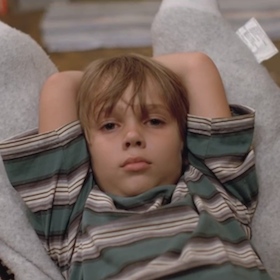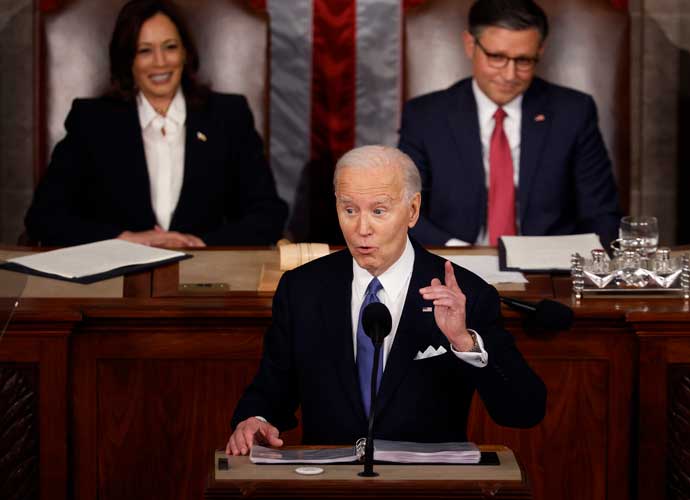'Boyhood' Review: A Bold But Unsatisfactory Coming-Of-Age Film

3.5/5
Shooting Richard Linklater’s latest film, Boyhood, took over a decade, as lead actor Ellar Coltrane grew from a seven-year-old boy to an 18-year-old young man. Filmed bit by bit over twelve years, Boyhood uniquely depicts a boy’s coming of age in real time. There is no cast change to portray the protagonist, Mason, at ages 5 and 13, nor are any of the other actors in the film changed or replaced, giving the film a visual authenticity even the best CGI and makeup cannot provide. It’s a strange sensation, watching people age 10 years in 3 hours – it’s a bit like watching all Harry Potter films in one night.
The music certainly adds to this effect, especially for audiences that are around the same age as Mason. In lieu of the common subtitles alerting viewers of the passage of time (i.e. 2004, or ‘3 years later’), Linklater uses a short fade and a Top 40 song to signify a time jump and give the viewer an indication of the year. For example, as Mason reaches his early teens, the segment opens on Mason riding bicycles casually with friends on skateboards as Soulja Boy’s “Crank That” plays loudly in the background. It’s a more organic way of giving the audience a frame of reference, and adds to the realism of the film. It doesn’t feel as if a director has manipulated time. Instead, it is as if the audience went home and then returned to visit Mason and his family three years later.
Boyhood is a fascinating study on growing up in a “non-traditional” family, and Mason and his family become like distant family friends to the audience – you visit them every year or so and don’t keep in touch in between. Mason’s parents, only known to the audience as ‘Mom’ (Patricia Arquette) and ‘Dad’ (Ethan Hawke), have long since split up when the audience is dropped into their lives, and Samantha and Mason grow up spending most of their time with their mother, while their father drops in for visits. Both Arquette and Hawke give equally moving performances. Hawke’s boyish charm and sly smile have never been better suited for a role. Hawke drove some of the best scenes in the film, including his sex talk with a early teenaged Samantha at the bowling alley, and his man to man bonding times with a young Mason.
The treatment of the adults in Boyhood is refreshingly distanced. Though it might hint at the Dad being too immature to truly help raise his children or the pair’s young, reckless love, it refrains from judgment and is careful not to place blame. Neither Mom nor Dad is the villain in this scenario, which is certainly more true to life than any black and white conflict.
Boyhood is difficult to critique, as a huge part of the film is Linklater’s incredibly ambitious concept. The fact that he succeeded in making a coherent and entertaining film at all considering the 12-year production is commendable. The fact that Boyhood plays like a scripted documentary, a true life story, is even more so. Yes, Mason and his parents have ups and downs, and there is one particularly frightening section in which Mason’s mother marries an alcoholic and violent Psychology professor, but the film is void of contrived drama. There are no huge confrontations between Mason and his semi-absent father, no grand romantic gestures. The only philosophizing comes from Dad.
While it is refreshing to see a coming of age film that isn’t trying to hammer in a moral lesson, there is a part of me that can’t help but wonder why Linklater chose this boy, this story, these years and milestones, to focus on. I suppose the somewhat arbitrary nature of these snippets of Mason’s life is meant to show both the passage of time and the mundane or quiet reality of growing up, and it succeeds. There is no doubt that Boyhood is unlike any other cinematic experience, and it proves, yet again, that Linklater has an incredible talent for capturing raw and honest relationships. But, walking out of the theater I couldn’t help but feel that something was missing.
What makes Boyhood unsatisfactory is that the audience never actually goes through a change with Mason. We see the before, we see the after, but we don’t see the process. Throughout the film, Linklater gives viewers a window into particularly emotional moments in Mason’s life – such as the aforementioned alcoholic stepfather – and then cut to a year later, when the life-changing event appears to be a distant memory. The audience experiences the trauma, but isn’t privy to the moments after, when Mason is forced to adapt. In the grand scheme of life, of course, seeing Mason once every few years does depict change, but it’s difficult to grasp the exact nature of any growth aside from the physical.
Part of my frustration comes from the fact that Mason’s sister, Samantha, played by Linklater’s daughter Lorelei Linklater, is simply much more interesting than her brother. Samatha is bolder, louder and, frankly, Lorelei is a much more consistent actor than Coltrane. From the beginning, when an eight or nine-year-old Samantha wakes up her little brother with a loud rendition of Britney Spears’ “Oops…I did it again,” Lorelei charms the audience. As they grow older, Samantha becomes an interesting young woman while Mason becomes a passive young man. That’s not to say that the character of Mason is boring, but Samantha is so captivating and intriguing that whenever the plot thinned or Mason got dull, I found myself wishing Linklater had switched his focus and named the film ‘Girlhood’ instead.
GET THE FREE uINTERVIEW iPHONE APP FOR LATEST NEWS UPDATES
RELATED ARTICLES
Get the most-revealing celebrity conversations with the uInterview podcast!








Leave a comment